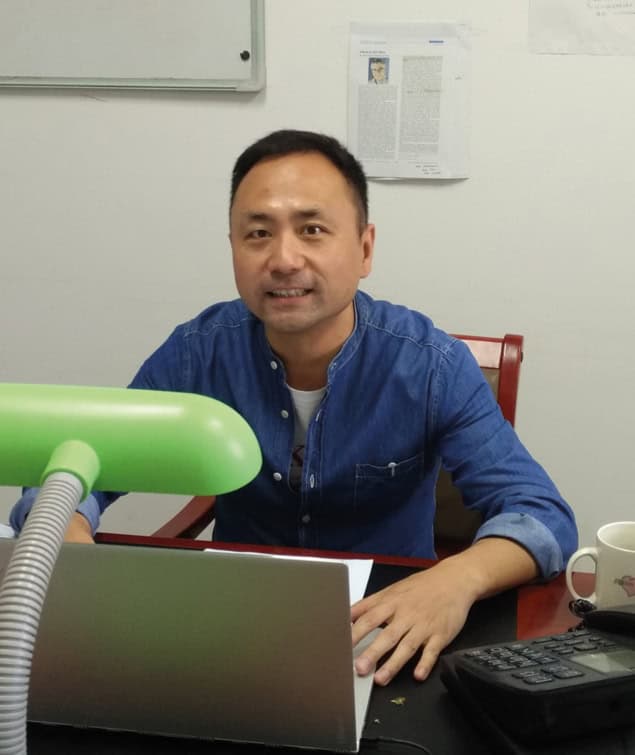Xinzheng Li, a condensed-matter physicist from Peking University, tells Michael Banks why it’s important for early-career scientists in China to gain research experience outside of the country

What research does your group carry out?
Since 2012 I have led the path-integral group in the Institute of Condensed Matter and Materials Physics at Peking University (PKU). We have around seven people in the group. Our research lies between traditional condensed-matter physics and chemical physics. We focus mainly on the development of computer-simulation methods and their applications to molecular and condensed-matter systems.
What specific systems are you studying?
We use path-integral molecular dynamics to study the influence of nuclear quantum effects on the properties of molecules
and condensed-matter systems. We recently discovered a low-temperature metallic liquid state of hydrogen at high pressure (Nature Comms 4 2064) and also study the quantum nature of hydrogen bonds (Science 352 321). More recently, we have been working on phase transitions between paraelectric and ferroelectric states and the existence of quantum paraelectricity.
Do you collaborate with other groups in China?
We work with an experimental group at PKU that undertakes low-temperature scanning tunnelling microscopy imaging.
What about further afield?
We have intensive collaborations with universities outside of China, for example University College London and the University of Cambridge in the UK. Maintaining such collaborations is crucial in keeping my own research in China to a good standard.
Why did you go to Europe early in your career?
I completed my Master’s degree in physics in 2003 at the Institute of Semiconductors, Chinese Academy of Sciences. I initially planned to go to the US for my PhD, but student visas were restricted following the terrorist attack on New York in September 2001. I then applied to the group of Matthias Scheffler at the Fritz-Haber Institute of the Max-Planck Society in Berlin, who offered me a PhD position. When I look back on this experience at one of the top research groups in my area, I am extremely pleased that I went to his group.
Was it unusual at the time for Chinese students to go abroad?
For Chinese scientists of my generation, getting good training in Europe or US is a very natural choice. Personally, I really wanted to learn something new so that when I finished my studies and eventually came back to China I could carry out decent research of my own.
What did you do after your PhD?
From 2008 to 2011 I did a postdoc at University College London where I learned how to carry out independent research.
How did your time in Europe affect you?
My time in Germany and the UK basically defined me as a scientist.
Why did you come back to China?
There are much better funding programmes in China for young researchers and this is very important if you want to have an academic career. The 1000 Talents programme is well known for successfully attracting young researchers to come back. In addition to this – and even more important – the National Natural Science Foundation is very supportive to young researchers. All of this together can help one get a good start in their research career.
How would you compare the research culture between the West and China?
Research in China is much more influenced by what is carried out in the US than, say, Europe. At least this is how I feel as a young researcher. In Europe, people can work on one specific topic for years without being pressured to publish in high-impact journals. So, for example, they can work on different computer-simulation methods without the need to deliver immediate results.
How can China learn from this?
We do need to learn. But one advantage we have is that the funding system is very generous and I hope that continues. If it does, we really need to make good use of such an opportunity to catch up.
How has your research experience influenced how you recruit your own research team?
My independent academic career started five years ago and since then I have recruited one postdoc and some PhD students, who are all from China. I strongly recommend them to go to Europe or US for further training. I also hope that I can recruit some members outside of China in the future.
What challenges are there in recruiting people from outside China?
The challenges include facing up to what is the traditional pattern for having a successful academic career. For people who want to work or study in China, but eventually go back to their own countries for a permanent job, the experience in China may not help them that much. In recent years, I see some change in that there are more students or postdocs coming to China, but the number is low. For them, it may take a longer time to create an academic reputation.



